|
|
|
|
Products mentioned in this Article
--None--
|
|
|
|
|
|
|
|
|
 |
|
|
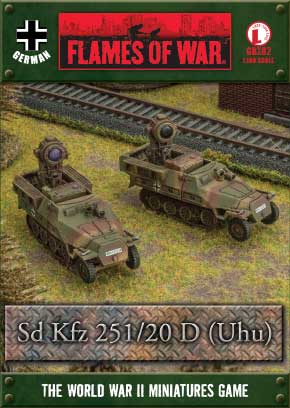
|
Sd Kfz 251/20 D (Uhu) (GBX82)
Includes 2 plastic SD Kfz 251/20 kits, 2 Sets of Uhu upgrade components, and 2 infrared tokens.
The ability to conduct effective offensive operations at night has long been recognized as a tactical advantage. However, until the 20th Century there had been no effective way to permit people to retain anything approaching their daylight levels of visual acuity during night-time operations. New technological developments including cathode ray tubes and oscillators meant that by the 1930’s night vision devices had entered the realm of feasibility.
Once the initial concept had been proven, the world’s militaries began work on systems which could be applied to field operations. In Germany, AEG began development of an active infrared sighting device in 1935. The basic system consisted of an infrared searchlight coupled with an image converter which served as the actual sighting device. Though the system had been demonstrated to the German Military in 1940, there was no real official interest until the Germans needed new tactics to counter Soviet night-time operations in 1942.
|
|
In February 1943 Heinz Guderian was promoted to Inspector General of the Armoured Forces, and took a more active interest in the night vision program. By the end of 1943 the FG 1250 sight, which utilized a 30cm (12”) infrared searchlight, was ready for use on armoured fighting vehicles. It was to be coupled with a more powerful 60cm (24”) infrared searchlight fitted on the Sd Kfz 251 half-track. As with any new technology the costs were high, the units were temperamental, and mass production was very difficult. As a result of these issues, production of the smaller sights did not begin in earnest until mid-1944.
Starting in late 1944, between 50 and 63 Panther tanks were equipped with the new night vision sights in preparation for deployment to active combat. The sight was attached to the commander’s cupola, which was modified to accept the new equipment. Some modern references show multiple night vision devices attached to Panther tanks including sights for the gunner and driver, but additional research has demonstrated this configuration was never considered for a variety of reasons including the cost of the individual units. A driver’s scope was under development, but was inferior in quality to the standard FG 1250 scope and was not used in combat.
|
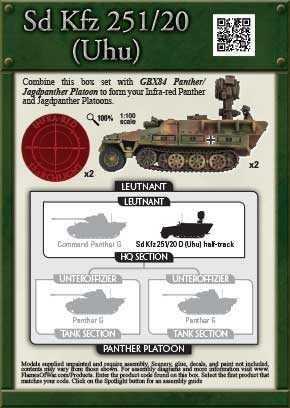 |
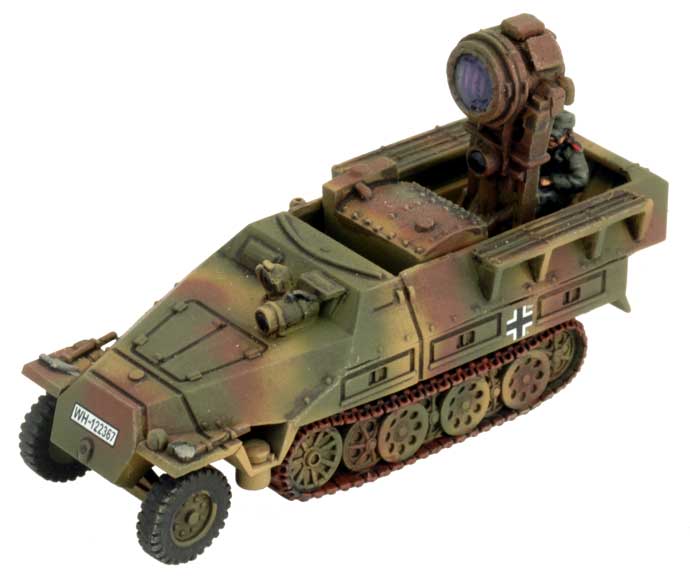 |
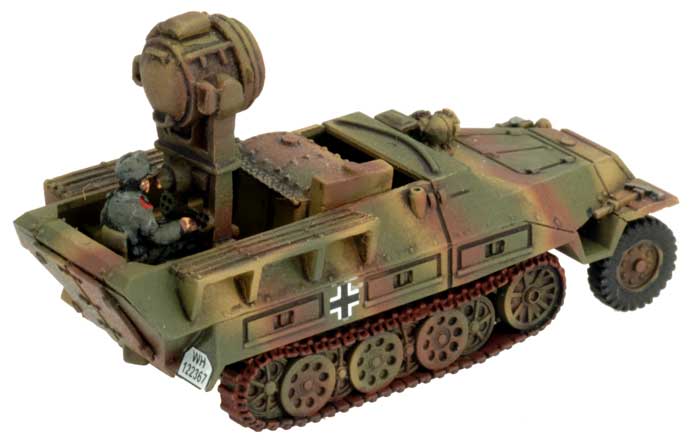 |
| Training of units to utilize the new technology was also fraught with
issues. A deteriorating war situation in Hungary resulted in the first
trainee units being deployed without the infra-red equipment. Guderian
was also concerned that the Western Allies had infrared detection
equipment of their own and would be able to counter any attack using the
active night vision equipment. He therefore preferred to use the
equipment on Eastern Front instead. |
| Known operational use of the infrared equipment
was very limited. The third company of 6th Panzer Division’s panzer
regiment utilized the gear in Hungary while three other companies (1.
Kompanie/29. Panzerregiment of Panzerdivision Müncheberg, 1.
Kompanie/130. Panzerregiment of Panzer Lehr Division, and 4.
Kompanie/11. Panzerregiment of 6. Panzerdivision) used the scopes during
the battles at the Seelow Heights and the Battle of Berlin. |
| German and British, US, and Soviet accounts also mention their use in
other places and times, but sparse and often unreliable records make it
make it difficult to verify many of these actions. |
| The panzers were not the only troops to be issued infra-red equipment.
An infra-red scope had also been developed for use with the StG 44
assault rifle. Small numbers of StG 44 assault rifles were fitted with
the ZG 1229 Vampir (Vampire)infrared night-vision device. |
| Some MG 42 machine-guns were also fitted with the ZG 1229 Vampir. The
grenadiers carrying this were known as Nachtjäger (night-hunters). As
well as the sight and infrared spotlight, the grenadier also had to
carry a wooden cased battery for the light, and a second battery fitted
inside a gas mask container for the image converter. The battery case
was strapped to a pack frame. |
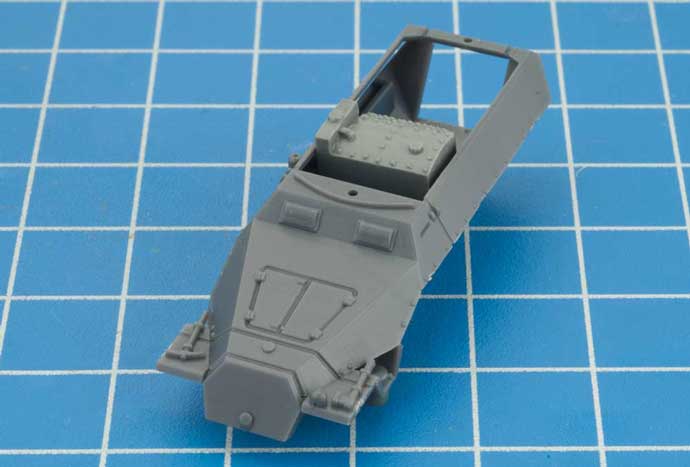 |
Assembling the Sd Kfz 251/20 D (Uhu)
Join Andrew as he demonstrates how to get your Uhu Platoon assembled the and on the table.
Assembling the SdKfz 251/20 (Uhu)...
|
Last Updated On Thursday, February 19, 2015 by James at Battlefront
|
|
|